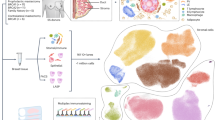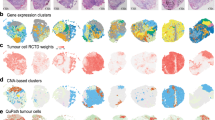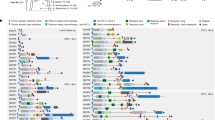Abstract
Chromosome 17 is one of the most frequently altered chromosomes in malignant breast cancer. At least four genes implicated in breast cancer reside on chromosome 17 (p53, 17p13; Her-2/neu/ERBB2, 17q12; BRCA1, 17q21; and nm23, 17q22). In addition, allelic imbalance has been described for at least five regions of chromosome 17. We have previously shown that the introduction of a normal human chromosome 17 into the breast cancer cell line MCF7 by microcell mediated chromosome transfer (MMCT) results in the in vitro growth arrest of these cells within 8 weeks, suggesting the presence of a growth suppressor on chromosome 17. Additionally, we have shown that the tumor suppressor gene p53 is not responsible for this phenotype, as it is wild type in MCF7 cells, and overexpression has no effect on either the in vitro or in vivo growth of these cells. We have further localized this growth suppressor gene to 17q24-q25 by transfer of chromosome 17 hybrids containing defined deletions. Whereas transfer of hybrids that contained an intact 17q (δ43/A9 and δ26/A9) resulted in growth arrest, two hybrids with overlapping deletions at 17q24-q25, had no effect on growth of MCF7 cells. Molecular analyses revealed that 50/70 (71%) of the resulting δ2/MCF7 or δ624/MCF7 MMCT clones retained an intact introduced chromosome 17. In contrast, only 8/34 (24%) of δ43/MCF7 revertants (deleted for 17p13.1-pter) which escaped growth arrest showed no breakage of the introduced chromosome 17. We did not observe a preferential loss of an intragenic BRCA1 marker in the MMCT hybrids, excluding BRCA1 as the gene responsible for this growth arrest phenotype. These data therefore implicate a new growth suppressor gene involved in breast cancer that is localized to chromosome 17q24-q25.
This is a preview of subscription content, access via your institution
Access options
Subscribe to this journal
Receive 50 print issues and online access
$259.00 per year
only $5.18 per issue
Buy this article
- Purchase on Springer Link
- Instant access to full article PDF
Prices may be subject to local taxes which are calculated during checkout
Similar content being viewed by others
Author information
Authors and Affiliations
Rights and permissions
About this article
Cite this article
Plummer, S., Adams, L., Simmons, J. et al. Localization of a growth suppressor activity in MCF7 breast cancer cells to chromosome 17q24-q25. Oncogene 14, 2339–2345 (1997). https://doi.org/10.1038/sj.onc.1201073
Received:
Revised:
Accepted:
Issue Date:
DOI: https://doi.org/10.1038/sj.onc.1201073
Keywords
This article is cited by
-
Pathophysiological role of ion channels and transporters in HER2-positive breast cancer
Cancer Gene Therapy (2022)
-
Allelotyping defines minimal imbalance at chromosomal region 17q25 in non-serous epithelial ovarian cancers
Oncogene (2000)
-
Multiple target sites of allelic imbalance on chromosome 17 in Barrett's oesophageal cancer
Oncogene (1999)
-
17q21-q25 aberrations in breast cancer: combined allelotyping and CGH analysis reveals 5 regions of allelic imbalance among which two correspond to DNA amplification
Oncogene (1999)



